The week ahead in Parliament
- Published
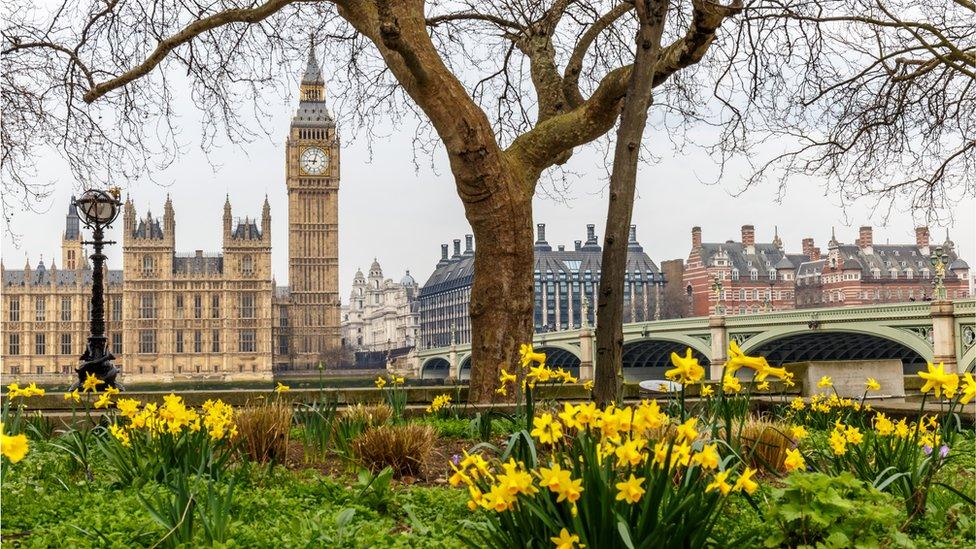
The Budget and its offspring, the Finance Bill, will dominate the parliamentary agenda for the next couple of weeks, providing regular opportunities for the row over NHS pay to be fought and refought, as well as for discussions about the government's economic strategy.
But away from the party battles in the Commons Chamber, longer term controversies are brewing in the select committees, on everything from green policies, to NHS restructuring, to the roadmap out of lockdown.
The law-making focuses on bills most of their way through the parliamentary sausage machine, with the Domestic Abuse Bill the most significant of these - this week sees two days of intensive activity in the Lords, to add to what is already a big and sweeping measure.
There's also a limited return to parliamentary normality, with the return of both Westminster Hall debates and of the Friday sittings to debate private members bills - new laws proposed by individual MPs.
There should be just enough time to whisk a favoured few of them off to the Lords and get them into law, before the likely end of the current session, expected towards the end of April.
Here - with all the usual health warnings about the changeability of the agenda - is my rundown of the week ahead:
Monday 8 March
The Commons opens (14:30) with Work and Pensions questions.
The day's Ten Minute Rule Bill comes from Labour MP Karen Buck - her aim is to curb the placement of homeless households outside their home areas.
Recent figures show half of homeless families in London were accommodated away from where they had previously lived.
The result, she will argue, is that many highly vulnerable families, find themselves moved away from local connections and support, their children's schools, and caring commitments.
The main business is the continuation of the Budget debate.
Westminster Hall returns in a new, Covid-secure incarnation, with two 90-minute Petitions Committee debates, first (16:30) on press freedoms and safety of protestors in India.

The second debate (18:15) is on LGBT conversion therapy - which will progress-chase the government pledge, three years ago, to end 'the abhorrent practice of conversion therapy'.
The debate is likely to cover the need for a legislative ban, and for specialist support for victims and survivors of conversion therapy.
It's a fairly quiet day on the Committee Corridor, with Treasury (15:30) quizzing expert witnesses from the Office for Budget Responsibility in its regular inquiry into the Budget proposals, which will culminate with a session with the chancellor himself.
Public Accounts (14:30) continue their recent set of hearings on green policies, with a session devoted to the workings of environmental tax measures, with Sir Tom Scholar, Permanent Secretary at the Treasury, and Jim Harra, Permanent Secretary at HM Revenue and Customs.
The generic aim of these sessions is to probe the crucial details (if any) behind the headline announcements.
In the Lords (13:00) Lord Udny-Lister, formerly the PM's joint Chief of Staff Sir Edward Lister, takes his seat as a Conservative peer.
There are questions to ministers on increasing the take up of pension credit, the impact of the Covid-19 pandemic on provision for teenagers in the care system, a report by the TUC on working mums and increasing the number of women holding elected office in the UK.
The main legislative event is the opening day of Report Stage of the Domestic Abuse Bill - where the planned three days could see as many as 14 or 15 votes.
This is normally a sign of a highly controversial or badly drafted bill, or both; on this occasion the dynamic is rather different.
The bill has almost universal cross party support, but it has been so long coming that all kinds of groups have well developed ideas they want to add to it.
Already the government has offered three major concessions, accepting amendments to extend the offence of coercive control to the aftermath of a separation, for example, where an abuser weaponises control of a bank account, after a partner has left them.
The government has also accepted the amendment from the former Victims Commissioner, Baroness Newlove to make non-fatal strangulation a specific offence, and that of the former Culture Secretary Baroness Nicky Morgan to make the threat to release private sexual images into an offence, extending the law on so-called revenge porn.
But there are plenty more to come.
On Day one, the disability campaigner, Baroness Campbell of Surbiton has an amendment ensure the bill covers abuse by carers.
There's another from the Conservative, Lord Polack, to ensure that the bill mandates public authorities to provide community-based services.
The argument here is that most victims want services they can access without having to move to a refuge, and that the bill is in danger of being too focused on the kind of services needed at crisis point. As I write, talks to agree a compromise on this issue are continuing.
I'm not quite sure when the former Labour leader in the Lords, Baroness Royall's amendment for serial domestic abuse or stalking perpetrators to be registered and subjected to supervision comes up.
It would also require the government to provide a comprehensive perpetrator strategy for domestic abusers and stalkers within one year of the act being passed.
Tuesday 9 March
The Commons opens (11:30) with Treasury questions
The day's Ten Minute Rule Bill from the Conservative, Aaron Bell would provide compensation for residents if the smell from local landfill sites was too great.
This follows an incident in February in his Newcastle-under-Lyme constituency, where smells from a landfill site generated 1,300 complaints to the Environment Agency in a single weekend.
The main event is the conclusion of the Budget debate - MPs will vote on a series of resolutions which will set out the parameters of the following week's Finance Bill.
Only the first resolution is amendable, and since it simply says that the government will levy income tax in the current year, that amenability is pretty theoretical.
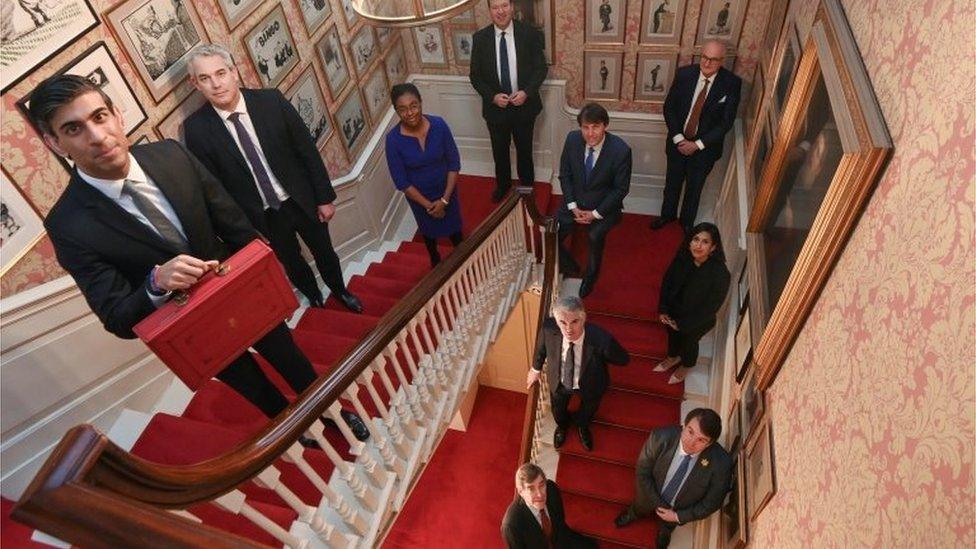
The chancellor delivered his Budget on 3 March
Normal service, in the form of a series of adjournment debates on assorted issues, resumes in Westminster Hall, where there the debates on Covid-19 vaccine take-up rates in London (09:25) and Cyber troop activity in the UK (16:50) caught my eye.
On the Committee Corridor, Science and Technology (09:30) explores the scientific basis for the government's roadmap for easing Covid-19 restrictions, with the familiar duo of Sir Patrick Vallance, the Chief Scientific Adviser, and Professor Chris Whitty, Chief Medical Officer for England.
Health and Social Care (09:30) continues its look at the reform plans in the new White Paper on health and social care, with Sir Simon Stevens, the chief executive of NHS England, and one of the architects of the plans.
And Digital, Culture, Media and Sport (10.00) looks at the scientific evidence on links between sport and long-term brain injury including dementia, quizzing consultant neuropathologist Professor Willie Stewart, who advises World Rugby on concussion, and neurodegenerative disease specialist Professor Craig Ritchie about the incidence of disease among professional players.
Education (10:00) has what could be a significant session on the impact of Covid-19 on education and children's services, with Schools Minister Nick Gibb and Ian Bauckham, of Ofqual explaining how the assessment system which is to replace the normal exams will work.
In the Lords (12:00) question time ranges across unemployment among the over-50s, strengthening the role of the World Health Organization to support the management of future pandemics, and increasing women's equality globally.
Then there's a brief rubber stamping of the Non-Domestic Rating (Lists) (No. 2) Bill - third reading, followed by committee consideration of the Overseas Operations (Service Personnel and Veterans) Bill.
Wednesday 10 March
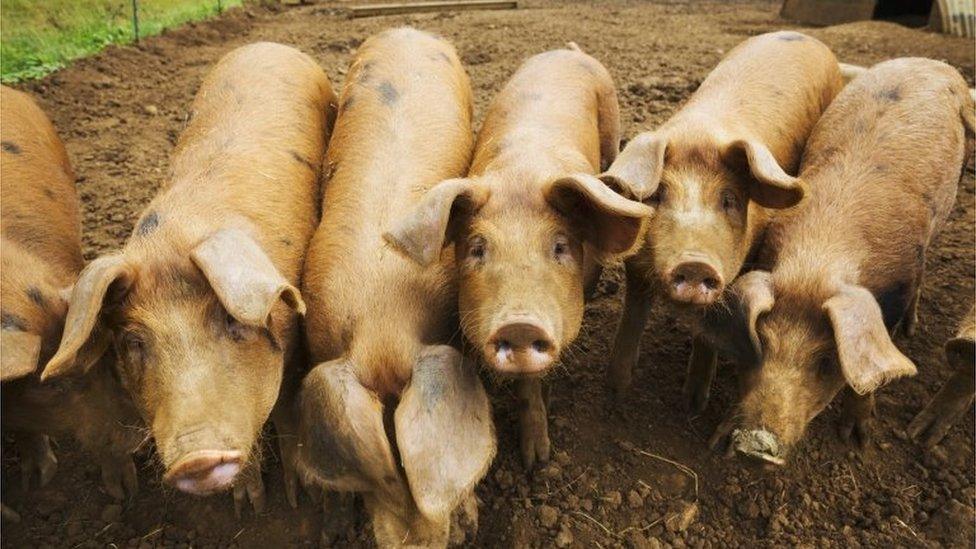
The Commons day begins (11:30) with half an hour of Scotland questions, followed, at noon by Prime Minister's Questions.
The day's Ten Minute Rule Bill, from the Conservative, Sir David Amess would ban the use of farrowing crates in pig farming.
The main event is an Estimates Day debate - this is the main mechanism by which MPs debate the government's spending, but the debates are actually on select committee reports on particular issues, rather than the grand sweep of spending.
It's a chance to make a few points about major issues exposed by select committee scrutiny - and this time the choices are: support for the arts and creative sectors during Covid-19, and the spending of the Cabinet Office on the international climate conference COP 26 .
Finally at 19:00 the House will be asked to agree (rubber stamp) all outstanding estimates.
In Westminster Hall subjects for debate include residential leaseholders and interim fire safety costs (09:25) and maternal mental health (14:30) .
On the Committee Corridor, Home Affairs (09:30) takes more evidence on Home Office preparedness for Covid-19.
Work and Pensions (09:30) looks at the disability employment gap, and Treasury (14:30) quizzes a panel of economic savants about Budget 2021 - they include Paul Johnson of the Institute for Fiscal Studies, Torsten Bell of the Resolution Foundation and Susan Himmelweit of the Women's Budget Group.
In the Lords, (12:00) there are questions to ministers on the supply of modern foreign language teachers, and inclusion of women in the development of policies responding to the pandemic.
Then, peers return to the report stage of the Domestic Abuse Bill , where day two looks likely to be where the main changes agreed by the government, on strangulation, intimate images and coercive control are written into the bill (see above).
Important amendments on protection for immigrant victims and those with no recourse to public funds are expected to come up on the final day of report stage, on Monday 15, but timing depends on how rapidly the debates move.
Thursday 11 March
MPs begin (09:30) with Transport Questions, then Business Questions to the Leader of the House Jacob Rees-Mogg.
Then follows a parliamentary curiosity - "Proceedings on the Supply and Appropriation (Anticipation and Adjustments) (No.2) Bill,".
This is the measure by which gargantuan sums of public money are allocated across government, all without debate - and we're not talking about minimal debate; it is actually out of order for this Bill to be debated at all - it is the clearest example of the extent to which the government controls parliament when it comes to money matters.
They will also zip through all stages of the Contingencies Fund (No.2) Bill - a measure to give the government access to funds in what remains a fast-moving situation.
That is followed by the annual debate on International Womens' Day, scheduled by the Backbench Business Committee.
In Westminster Hall there are backbench debates on pharmacies and the impact of Covid-19, led by former Health Minister Jackie Doyle-Price (13:30), and on the quality of life for patients with heart failure (15:15).
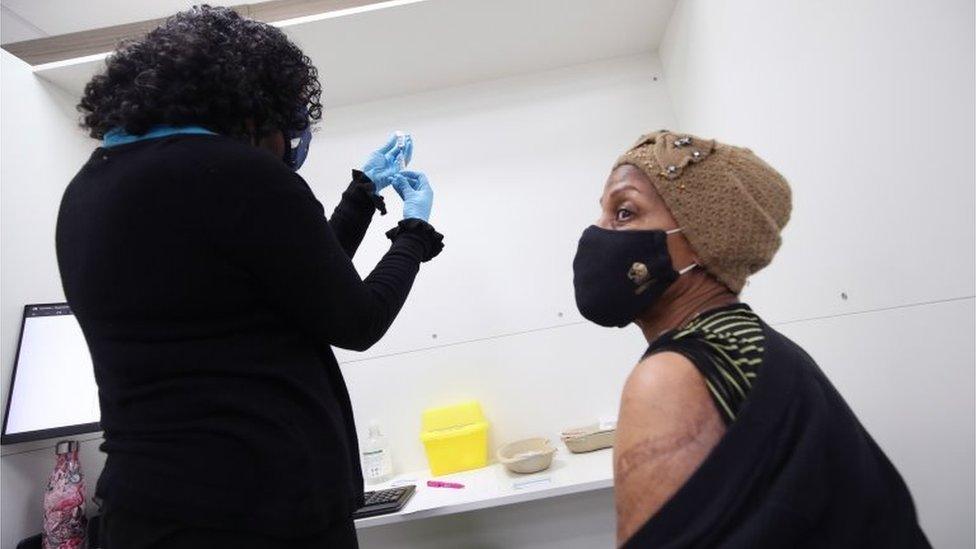
Pharmacies have been part of the vaccination roll-out effort
The big event on the Committee Corridor is the appearance of the Chancellor, Rishi Sunak before the Treasury Committee (14:30) which is always the concluding act in their inquiry into a Budget 2021.
Another one to watch is Environmental Audit (10:30) which hears from Alok Sharma, President Designate of the COP26 climate change conference.
In the Lords (12:00) ministers field questions on global population growth; visa and work permit requirements for touring in the EU and prohibiting the flaring of gas on off-shore gas rigs.
The main business is consideration of the detail of the Overseas Operations (Service Personnel and Veterans) Bill - the measure to provide some protection against prosecution for historic offences.
Friday 12 March
Private Members' Bills are back in the Commons (09:30) although, as I write, exactly which are to be debated has not been revealed; my guess is that Mike Amesbury's bill on school uniform costs will feature, because it has cleared committee and can be sent on to the Lords, with some prospect of completing consideration before the end of the Parliamentary year.
And the Lords also sits (11:00) for its debate on the economy, in light of the Budget.
Even though the Lords have no leverage over the Budget and the subsequent Finance Bill, there are 71 down to speak (although no ex-chancellors, yet).
- Published3 March 2021
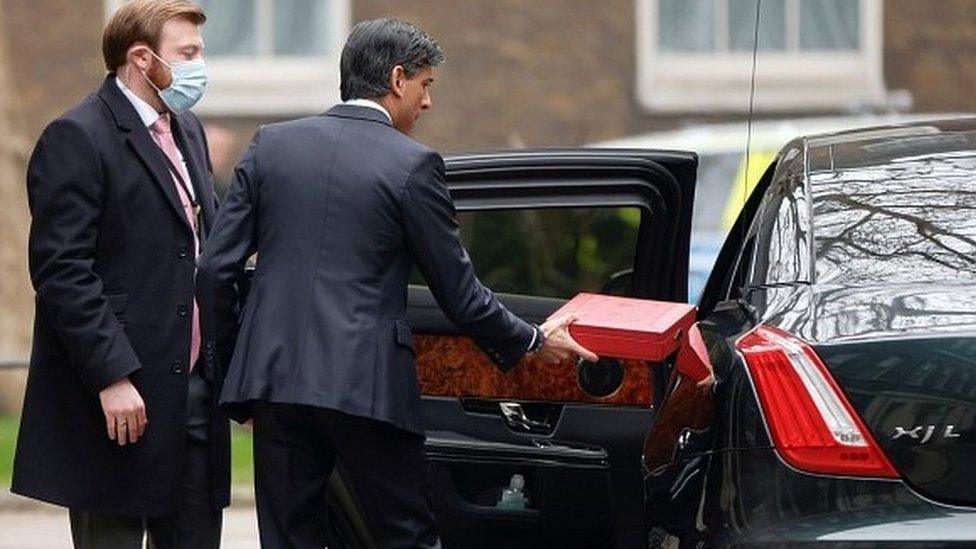
- Published8 March 2021

- Published1 July 2022

